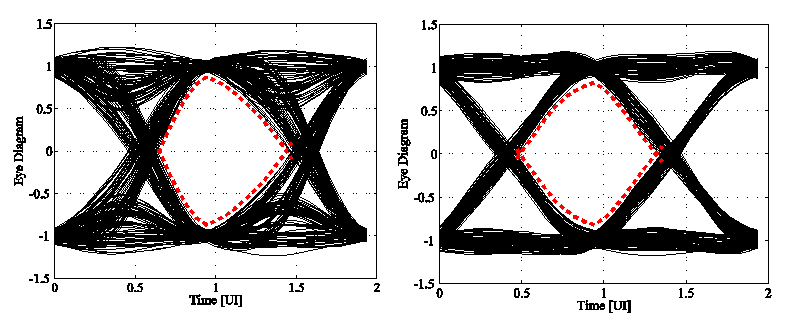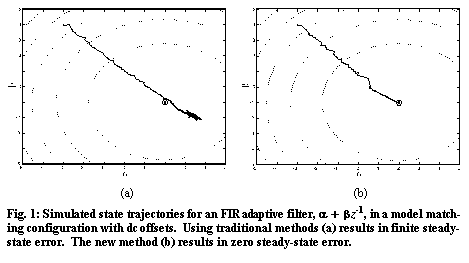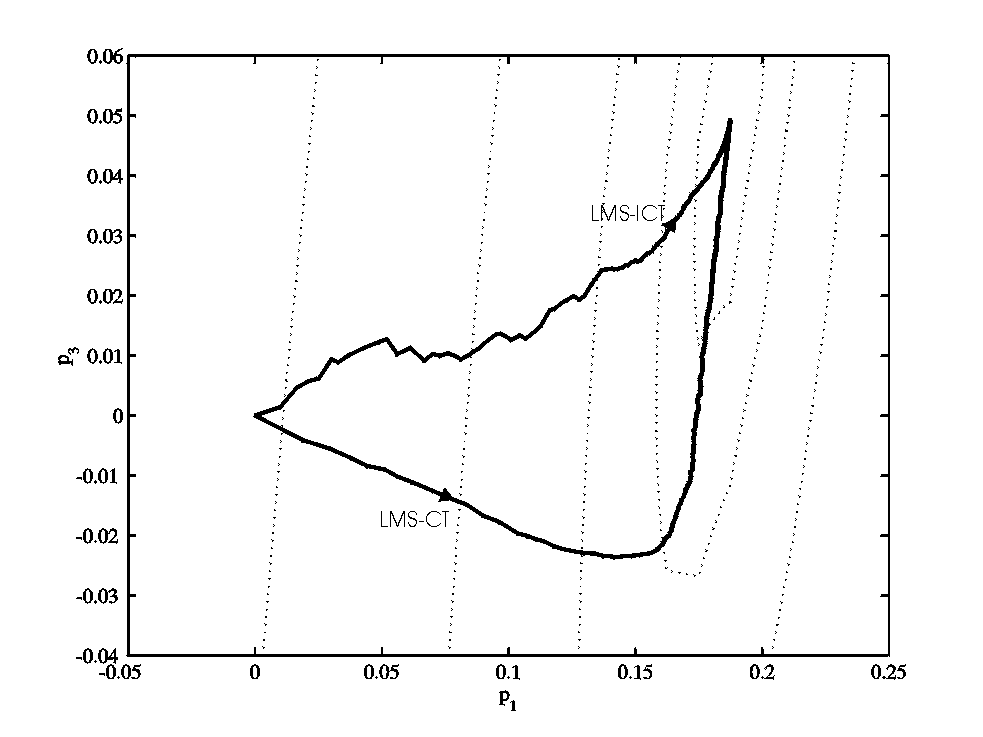|
|
Digital Adaptation of Analog FiltersObjectiveTo demonstrate practical methods and algorithms for digital adaptation of analog filters which, in mixed analog-digital systems, have hardware-efficient implementations. AchievementsJitter-minimizationIn this project, a hardware-efficient technique for adaptive equalization that minimizes jitter in baseband binary NRZ serial links was developed. Whereas traditional least mean square adaptation minimizes the mean squared error only at the center of the received eye pattern, this algorithm explicitly includes low jitter as part of its optimization criteria. The resulting equalizer coefficients provide a compromise between maximizing noise margin and minimizing jitter at the equalizer output.. Below are simulated eye diagrames comparing the output of a 10-tap FIR equalizer whose coefficients were adapted with the traditional LMS algorithm (left) and the jitter-aware algorithm (right).
Unknown input state estimationA new method for obtaining the gradient signals required by LMS adaptive filters has been developed. Unlike previous techniques, access to the filter's internal state signals is not required. Estimates of the state signals are obtained digitally from samples of the filter output taken at the Nyquist rate. The technique is robust with respect to dc offset effects, as shown in Fig. 1. (Carusone & Johns, "Obtaining Digital Gradient Signals for Analog Adaptive Filters", ISCAS `99)
Digital estimation of analog gradient signalsTwo new algorithms for analog adaptive linear combiners have been demonstrated with a particularly straightforward hardware implementation. Two (possibly subsampled) one-bit quantizers are used: one for the filter input, one for the error signal. No multi-bit A/D converters are necessary. Again, the algorithms are robust with respect to dc offsets.
Both algorithms have been applied to the adaptation of a 5th order integrated analog filter test chip with success. (A. Chan Carusone and D. A. Johns, "Digital LMS Adaptation of Analog Filters Without Gradient Information," IEEE Transactions on Circuits and Systems II, Aug. 2003, pp. 539-552.) |


